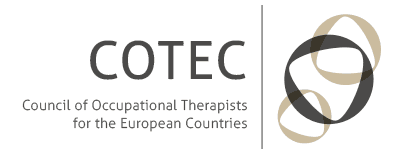Norway National OT News
News from Norway, 2020
The aftermath of COVID-19
These last months have been quite the challenge, also in Norway. COVID-19 changed everyday life and how occupational therapists worked. While writing this, business is more or less back to normal. For the last couple of months, however, occupational therapy services were closed down or given only when considered highly necessary. Many of our members took on new tasks, and we are very proud of their efforts to contribute during the outbreak.
The need for rehabilitation has increased, as a result of COVID-19. Those who did not get services during the outbreak are now in need of strengthened efforts. In addition, patients who have recovered from COVID-19 need long term rehabilitation, to regain function and independence in their everyday life. We are now working to get this message through to the authorities.
Lack of occupational therapists
On January 1st 2020, it became mandatory for all 356 municipalities to offer occupational therapy services. 80 of them still do not, and we are concerned that a lack of occupational therapists is slowing down the process. The smaller, rural municipalities have very few applicants. On a positive note, applicants wanting to study occupational therapy are continuously increasing. Our Universities have more applicants than ever, and we are glad that the applicants recognise the possibilities of our profession.
Preparing for congress
Our organisational congress is held every third year. That is when we have our elections and adopt a new strategic plan. We are now preparing the event to be held on October 21st and 22nd and are excited to see what actions the delegates will want the organisation to take next.
News from Norway, 2019
The window of opportunities for occupational therapy in Norway
The Norwegian association continues to promote occupational therapy as the solution to demographic and societal challenges. This strategic way of thinking and working is opening new doors for our profession.
Last fall, the Government passed a white paper promoting a reform for the elderly. We gave input to the white paper, and a big part of the content ended up matching the competencies of occupational therapists. -Examples of priorities being; age-friendly country, activity and community, food and meals, health care, interrelated services. As a result, our board has decided that this year’s main focus is ‘participation and self-efficacy for the elderly’.
Working on the main focus, includes involving our entire association. Our regional boards bring awareness to our shop stewards, and our shop stewards bring awareness to their members in the working place. We also make newsletters and posts on our website and in social media, that highlights the window of opportunity that lies in the Government’s white paper. The reform calls all municipalities for action, and we call all our members for action. We ask them to sign up in their municipality and contribute with their crucial core competence. Our association also meets with politicians and key stakeholders, to highlight the importance of contributions of our profession.
Occupational therapy continues to grow in Norway, especially in the municipalities. In the years to come, we will most likely experience a shortage of occupational therapists. This has resulted in efforts, in cooperation with our universities, to increase their capacity.
Also being a union, we negotiate both salaries and collective agreements for our members. Pay and working conditions are an important part of the membership in the Norwegian Occupational Therapy Association. This spring, we have achieved a decent raise for most of our members.
Overall, we continue our work on promoting occupational therapy and our way of providing sustainable health care services.
